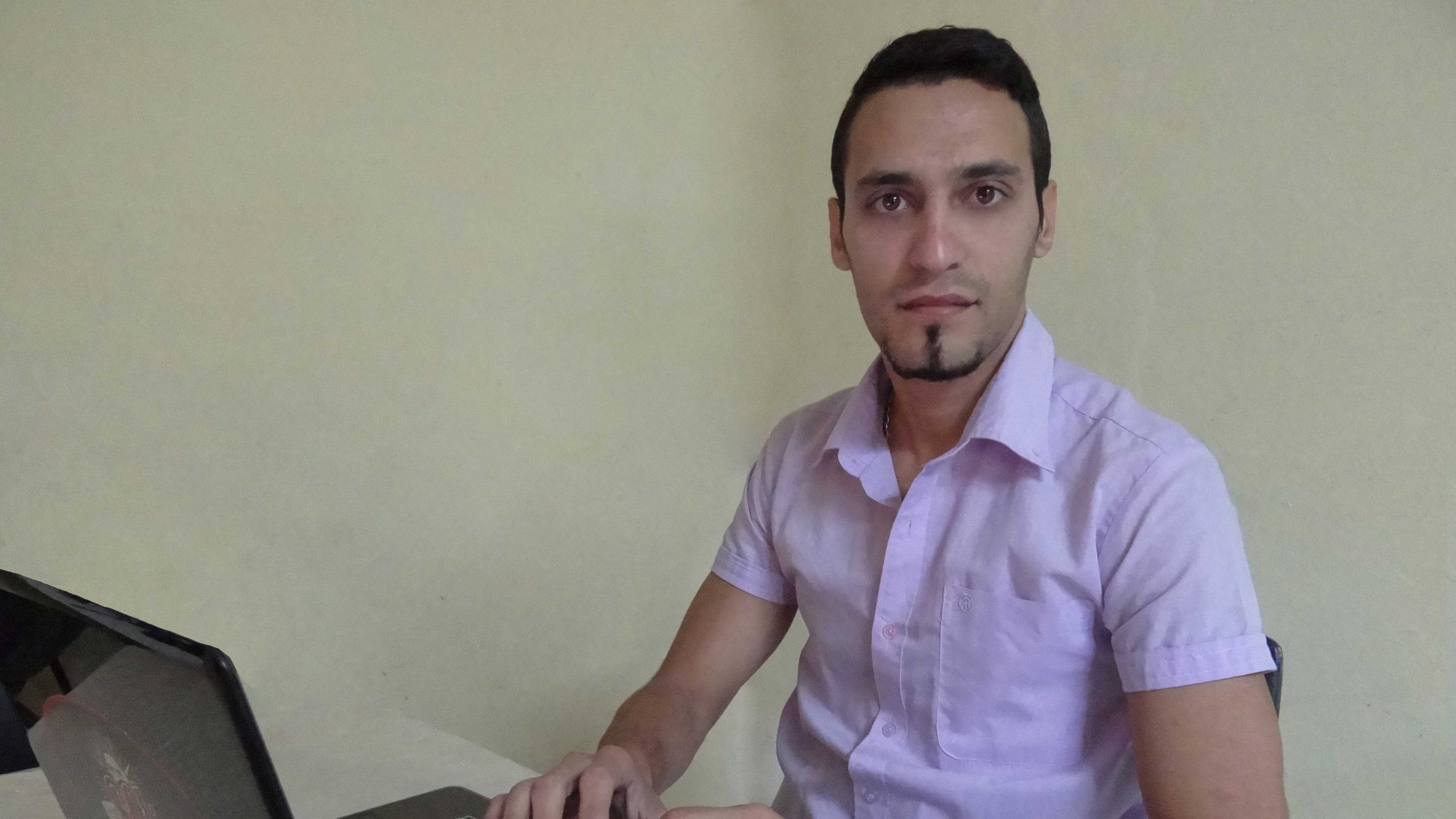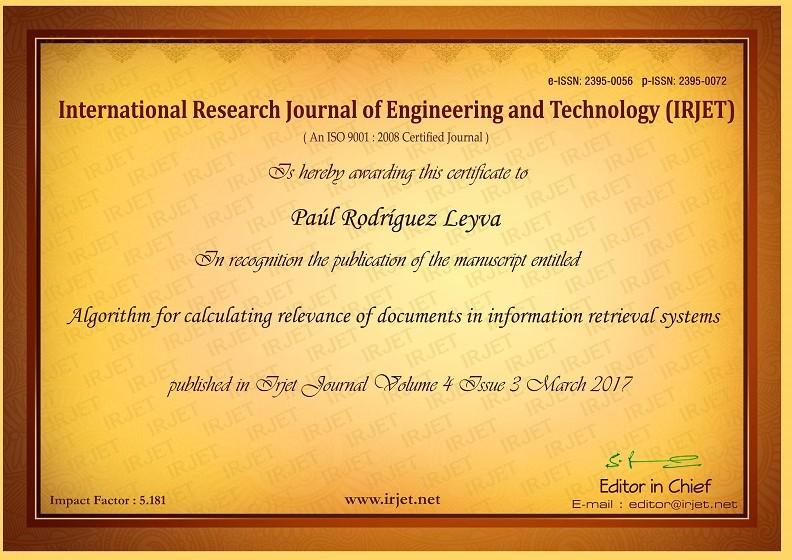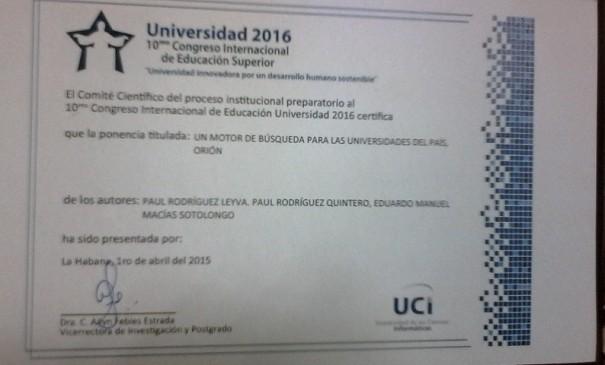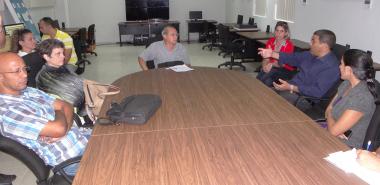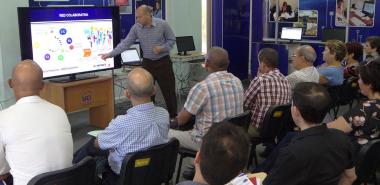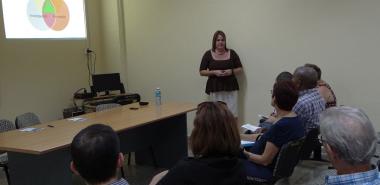Ing. Paúl Rodríguez Leyva, a Ph.D. applicant in Computer Science. Photo: Alberto Medina Cruz
Paul has trained in the university as a better professional
The accreditation of the Doctorate in Computing, the only one that is carried out at the University of Informatics Sciences (known as UCI), is part of the quality strategy to which the institution aspires, which already has a Mastery program of Excellence.
The Doctoral Program is approved in 2009, two years later the Special Program for Scientific Training in Computer Science (Pefci) is started and in 2014 it was communicated to the National Commission of Scientific Degrees of the Ministry of Higher Education. By the end of 2016, the self-evaluation process is begun to accredit the program.
This scientific tutelary program has graduated 28 doctors; Of them 26 from the UCI, one of Softel and a foreigner. The research lines are based on the computerization of Cuban society.
Currently in the Doctorate of Computer Science, there are 45 applicants enrolled: 19 from the UCI, 17 from other Cuban universities and nine foreigners. Our center of higher education counts among its future Ph.Ds with the Engineer Paúl Rodríguez Leyva, graduated of Engineer in Computer Science in the year 2011.
He is the Head of the Computer Solutions Department for the Internet at the Ideoinformatics center and will present in July the pre-graduate of his doctorate, which began in 2015 and plans to finish it in September. The subject that investigates is a Computational model for the processing of documents and support to the decision making in systems of information retrieval.
The established procedure indicates to present the subject to the Scientific Committee of the school to which it belongs for its approval and proposal of admission to the doctoral program.
This modest researcher tells us that the requirement that every applicant must fulfill is above all the desire and the will to investigate, in addition to being receptive to the criticisms, which he considers that in the academic world there are many. He has also met with success the indispensable results for the formation of his doctorate: minimum of English, of Social Problems of Science and Technology (PSCT) and of the Specialty.
They ask for two scientific publications in high impact magazine; But Paul has more than 20 in memoirs of events and in magazines, highlighting the one of the
RCCI (Cuban Journal of Computer Science).
The other outstanding publication was in IRJET: International Research Journal of Engineering and Technology, with an impact factor of 5,181. Article:
Algorithm for calculating relevance of documents in information retrieval systems.
Our future doctor considers that the control over his work by the Doctoral Committee, the Scientific Council or the Department has been constant. Not only they meet on Fridays in the meetings planned for academic debate, but there are also other spaces where they analyze the state of the research.
- How does Paúl Rodríguez assess the tutoring work?
- Excellent, meritorious recognition. Not only they have fulfilled their role of tutors, but they have also become researchers in love with my specific subject, which is related to information retrieval.
"In addition, in the work I have published, the tutor has been in this process more than a reviewer, an active member of the research process and the article."
Paul is grateful for the constant and abundant material support for the development of his research and congratulates the workers who take care of this subject in the university library.
He considers that the updated bibliography has been adequate and has had the best access to the computer media and the Internet.
- How do collective scientific activities influence your doctoral training?
- I have participated in many collective scientific activities and events.
"In the last Winter School I joined as a professor in the courses of Evolution of the Web and Knowledge Management, taught by my tutors.
"This and other activities are a fundamental key element, as they are creating skills and a mastery of knowledge that are necessary for the training not only of a Ph.D. but of any professional."
- What, in your opinion, are the main strengths and weaknesses of the doctoral program that you attend?
- The program itself is a strength because it becomes an inexhaustible source of knowledge propitiated by the experience of professors and Ph.D.s who guide the process of training the applicants. You learned more in a meeting of the program than in a whole course of Research Methodology, and practice makes perfect.
Before saying goodbye, Rodríguez Leyva showed gratitude to the Doctoral Program of the University of Informatics Sciences for having trained him as a better professional and researcher.


